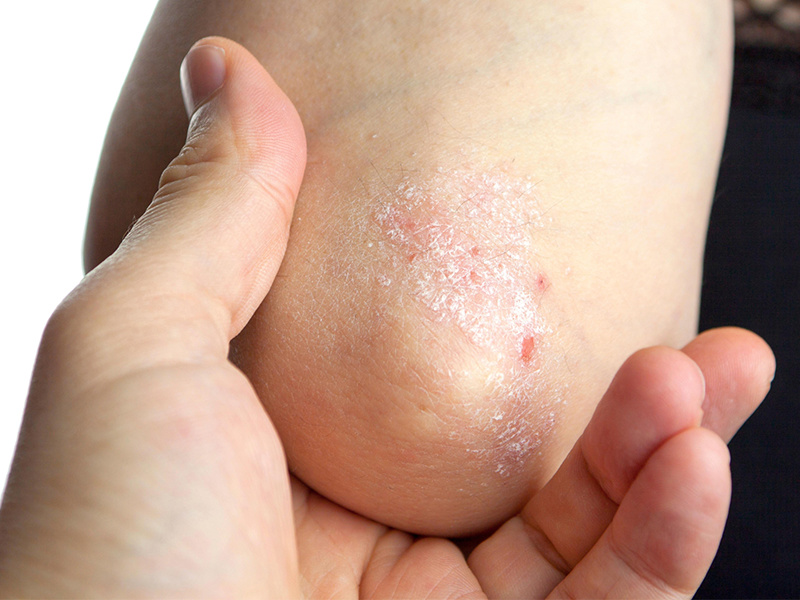Model relies on readily available clinical variables
By Lori Solomon HealthDay Reporter
FRIDAY, Aug. 11, 2023 (HealthDay News) — The development of psoriatic arthritis (PsA) can be predicted with reasonable accuracy for psoriasis patients, according to a study published online Aug. 9 in Arthritis & Rheumatology.
Lihi Eder, M.D., Ph.D., from University of Toronto, and colleagues developed a risk prediction model (PRESTO) for the development of PsA among individuals with psoriasis.
The researchers reported that among 635 patients with psoriasis, 51 developed PsA at one year and 71 at five years. At one year, the risk for developing PsA was associated with younger age, male sex, family history of psoriasis, back stiffness, nail pitting, joint stiffness, use of biologic medications, patient global health, and pain severity (area under the curve, 72.3). At five years, the risk for developing PsA was associated with morning stiffness, psoriatic nail lesion, psoriasis severity, fatigue, pain, and use of systemic nonbiologic medication or phototherapy (area under the curve, 74.9). There was reasonable agreement between predicted and observed probabilities.
“[PRESTO] can also identify patients with psoriasis who can benefit from early treatments, and it can serve as an educational tool for patients to increase awareness of psoriatic arthritis risk,†Eder said in a statement. “Ultimately, we hope that these efforts will improve the lives of people living with psoriatic disease.â€
Several authors disclosed ties to the pharmaceutical industry.
Copyright © 2024 HealthDay. All rights reserved.








